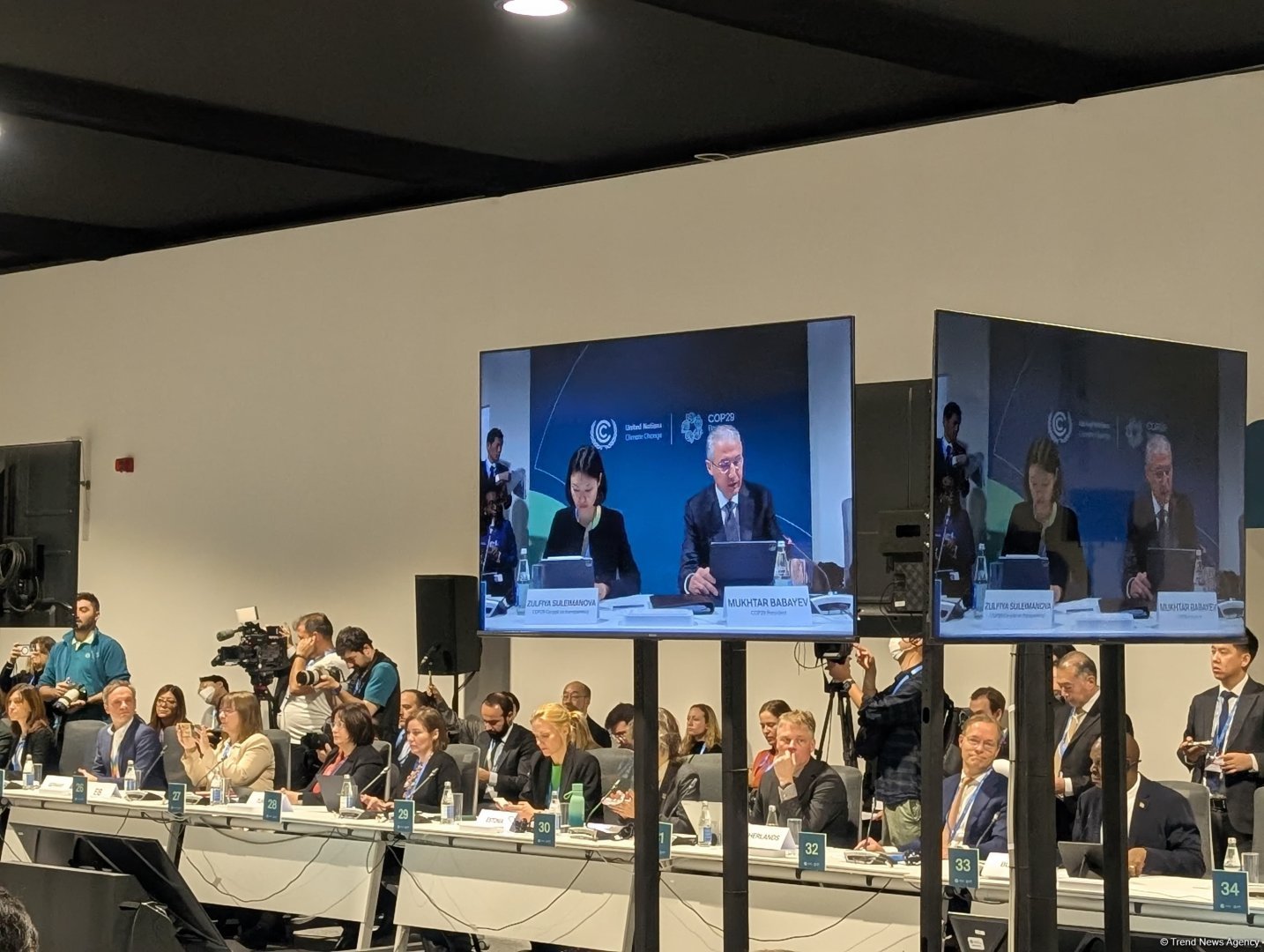BAKU, Azerbaijan, November 18. Azerbaijan’s Biennial Transparency Report (BTR) is ready for submission this week, said COP29 President and Minister of Ecology and Natural Resources Mukhtar Babayev at a ministerial roundtable on global climate transparency, Trend reports.
“Increasing climate ambition requires clear plans to keep the 1.5-degree target within reach, as outlined in Nationally Determined Contributions, National Adaptation Plans, and Biennial Transparency Reports (BTRs). From the start, transparency has been a top priority for the COP29 Presidency. Today, I want to focus on BTRs and how COP29 is advancing transparency in climate action. Transparency fosters trust and confidence in the international process. It holds us accountable and drives higher ambition in tackling climate change.
Reliable data is key to evaluating progress in mitigation, adaptation, and support measures. It strengthens global cooperation and guides national climate strategies. I’m pleased to announce that Azerbaijan’s Biennial Transparency Report is ready for submission this week. Transparency also helps countries better understand their capacities for climate action and pinpoint areas where support is needed. It provides critical insights to direct assistance to those who need it most, including vulnerable communities. This ensures targeted support in areas requiring additional investment and action,” he noted.
The 29th session of the Conference of the Parties to the UN Framework Convention on Climate Change (COP29), which will run until November 22, opened at the Baku Olympic Stadium on November 11. The event is the largest organized by Azerbaijan to date and is the first time the region has hosted the event in Azerbaijan.
Within COP29, the highest level event - the summit of world leaders on climate action - was held on November 12–13.
The main expectation from COP29 is to agree on a fair and ambitious New Collective Quantitative Goal (NCQG) on climate finance. The COP29 chairmanship has launched 14 initiatives that include linkages between climate action and the Sustainable Development Goals, including green energy corridors, green energy storage, harmony for climate resilience, clean hydrogen, methane reduction in organic waste, action on green digital technologies, and other topics.
In addition to being a top priority that creates the conditions for action, creating climate finance will also help fulfill the 1.5°C pledge by bringing everyone together.
The UN Framework Convention on Climate Change is an agreement signed at the Rio Earth Summit in June 1992 to prevent dangerous human interference in the climate system. The acronym COP (Conference of Parties) stands for “Conference of Parties” and is the highest legislative body overseeing the implementation of the Framework Convention on Climate Change.
A total of 198 countries are parties to the Convention. Unless otherwise decided by the parties, COP is held annually. The first COP event was held in March 1995 in Berlin, and its secretariat is located in Bonn.







